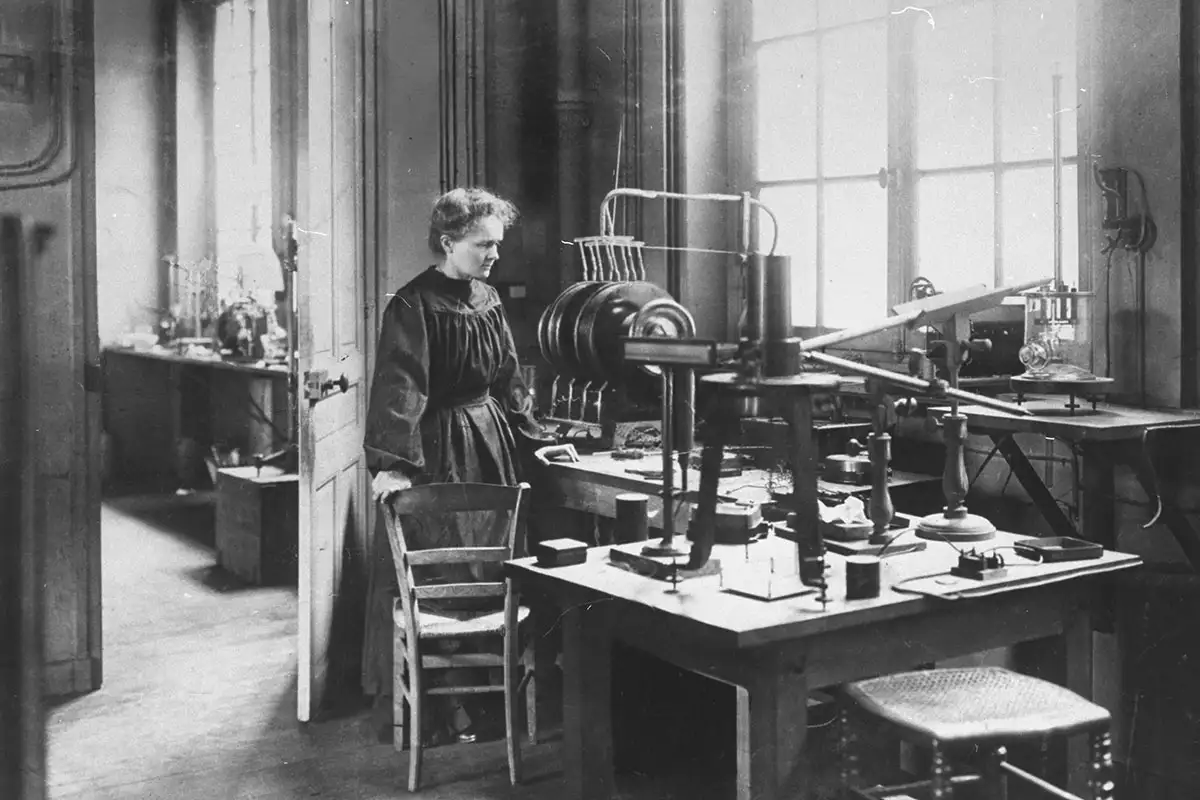
Her Contribution and Legacy: Marie Curie - Pioneering Radioactivity Research and Shaping Modern Science
In the dimly lit laboratories of early 20th-century Paris, a remarkable woman embarked on a journey that would illuminate the darkest corners of science and defy the gender norms of her time. Marie Curie, born Maria Skłodowska in Warsaw, Poland, in 1867, would go on to become an iconic figure in the world of science. Her groundbreaking work in radioactivity research not only earned her multiple Nobel Prizes but also left an indelible mark on modern science. We will uncover the extraordinary life, pioneering contributions, and enduring legacy of Marie Curie, a woman who challenged societal constraints, advanced our understanding of the atomic world, and continues to shine brightly in the annals of history.
Pioneering Radioactivity Research
Marie and Pierre Curie's partnership was a match made in scientific heaven. Together, they embarked on a journey to uncover the mysteries of radioactivity, a term coined by Marie herself. In 1898, the Curies discovered two new elements, polonium and radium, demonstrating that radioactivity was not a property of a single element but a fundamental feature of certain atomic nuclei.
Their tireless work led to the development of the theory of radioactivity, which laid the foundation for nuclear physics. It also led to the invention of the Curie electrometer, a device that could measure radioactivity accurately, and the discovery of the phenomenon of radioactive decay, a concept pivotal in understanding nuclear reactions.
Nobel Prizes and International Recognition
Marie Curie's pioneering contributions did not go unnoticed. In 1903, she became the first woman to receive a Nobel Prize, sharing the Nobel Prize in Physics with Pierre Curie and Henri Becquerel for their work on radioactivity. In 1911, she received her second Nobel Prize, this time in Chemistry, for her discovery of radium and polonium and her study of their properties.
Her legacy as a trailblazer for women in science extended beyond the laboratory. Marie Curie became a symbol of determination and an inspiration to countless women, proving that they too could excel in the male-dominated field of science.
Radiological Assistance During World War I
During World War I, Marie Curie used her expertise to make significant contributions to the war effort. She established mobile radiography units, which were known as "Little Curies," to provide X-ray services to wounded soldiers on the front lines. Her dedication and ingenuity saved countless lives by enabling doctors to locate bullets and shrapnel in wounded soldiers quickly.
Enduring Legacy
Marie Curie's legacy is as enduring as the radioactivity she studied. Her pioneering work in radioactivity research laid the groundwork for the development of nuclear physics, medical applications of radiation, and the understanding of atomic structure.
Her contributions to science and her perseverance in the face of adversity continue to inspire generations of scientists, especially women in STEM fields. Today, the name Marie Curie is synonymous with brilliance, courage, and an unwavering commitment to advancing human knowledge.
Marie Curie's life and work represent the embodiment of scientific excellence and the tenacity to overcome societal obstacles. Her groundbreaking research, recognition through Nobel Prizes, and enduring legacy in science, as well as her humanitarian efforts during World War I, have left an indelible mark on modern science. Marie Curie not only advanced our understanding of the atomic world but also shattered gender barriers, setting a precedent for women in STEM fields worldwide. Her life is a testament to the incredible impact that an individual, regardless of gender, can have on the world of science.
Blogs for you
Half the Sky's mission is to supply the tools that can give every woman the ability to build a successful career and be fully prepared for the future of work. So, that they can lead a healthy, prosperous and more balanced/blended lifestyle of their choosing. By building your confidence, you’re setting foundations to empower yourself and your career. The world is your oyster, and it starts with you.
Enjoyed this article let us know your thoughts in the comments below:
About half the sky
half the sky (HTS) is a career platform for women connecting you to career opportunities at companies that care. Providing you with information, tips and strategies to navigate the rapidly changing workplace.
Sign up to get career tips and job alerts directly to your inbox! Join us to shape the future of women at work together!



